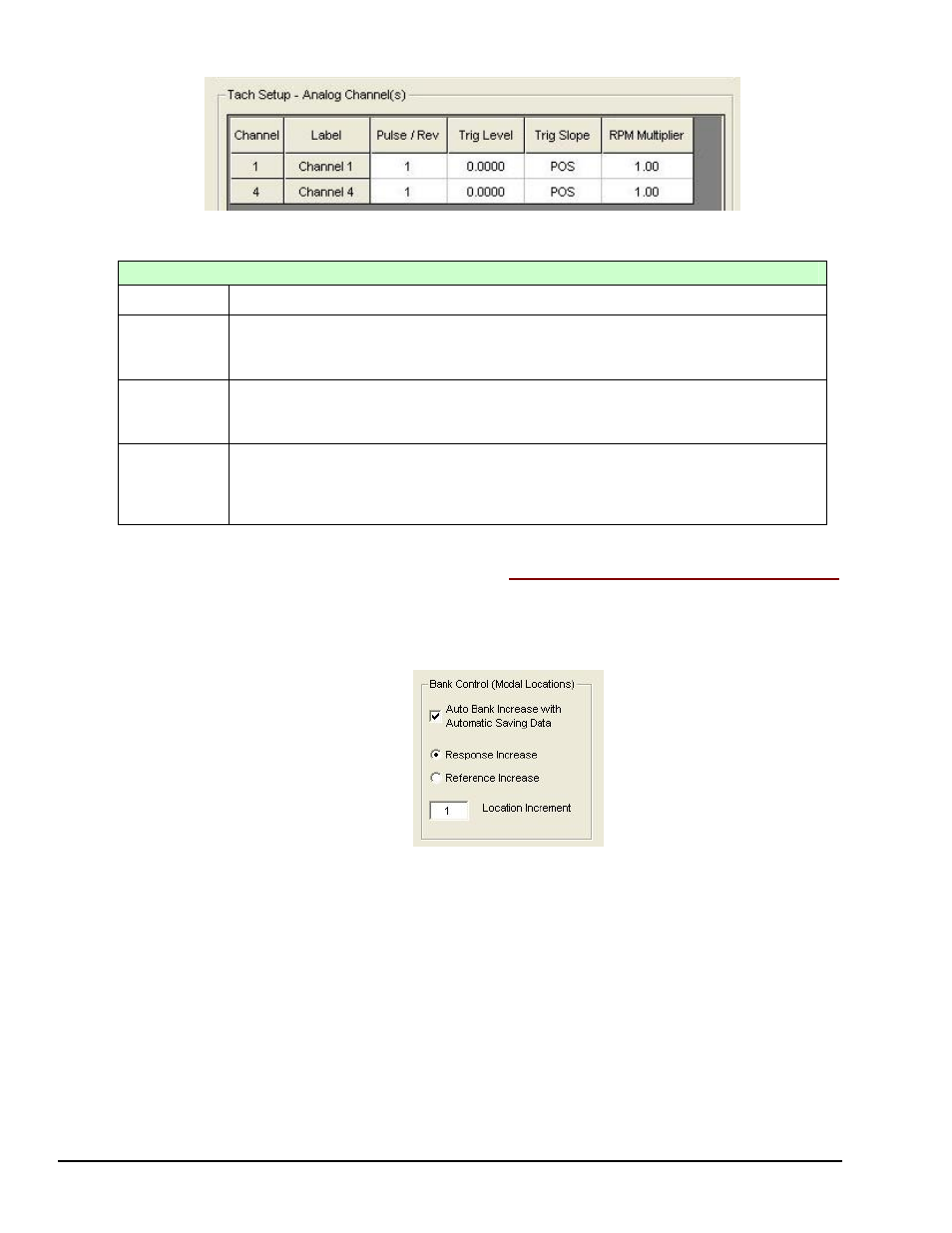Measurement Computing eZ-PostView rev.2.0 User Manual
Page 108

4-30 Edit Menu
969795
eZ-Analyst
Tach Setup – Analog Channels Section of FFT Tab
Properties for Analog Channels (CH1 through CH8) when set to “Tach” for Input Type
Pulse/Rev
Displays the number of pulses per revolution.
Trig Level
(Trigger
Level)
Specifies the pulse level that the RPM algorithm considers valid.
Trig Slope
(Trigger
Slope)
Specifies whether counting is Positive or Negative. Positive means that the
trigger will be active on rising signal levels. Negative means that the trigger will
be active on falling signal levels.
RPM
Multiplier
This column is used for entering a value to convert RPM into other units, e.g.,
Miles per Hour, Revolutions Per Second, or HZ. The desired conversion factor is
entered as a multiplier. To divide, you would simply enter an appropriate
decimal, e.g., to divide by 2 you would enter a value of 0.5.
Edit Menu > Configuration >
FFT Setup Tab:
Bank Control (Modal Locations) Panel
This panel relates to the Modal Locations window, which is accessed from eZ-Analyst
Window’s pull-down menu. The Bank Control (Modal Locations) Control Panel contains one
check box, two radio buttons, and a location increment field. Descriptions of each follow.
Bank Control (Modal Locations)Panel
Note: This option is only effective when the averaging mode is used.
Auto Bank Increase
with Automatic
Saving Data:
A Bank is a set of response channels. You can have eZ-Analyst
increment the banks automatically after each measurement, or
you can manually increment the banks. The number of active
channels is used as the skip factor for bank switching.
If the Auto Bank Increase checkbox is checked, then the bank is
automatically incremented, but only when the automatic saving
data option is selected at Setup Export Function Data menu.
